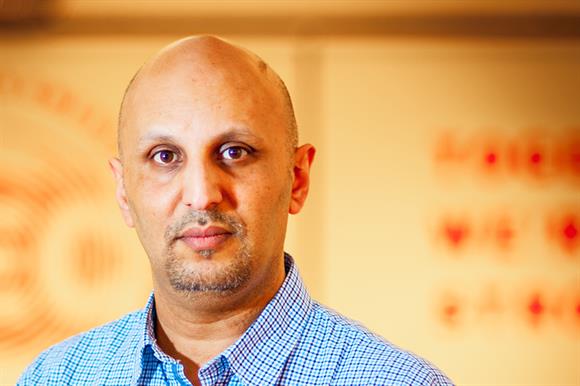Horror and uncertainty are part of life in Yemen. We must act to prevent famine ( Guardian)
Saleh Saeed
Is CEO of the Disasters Emergency Committee (DEC)
YemenExtra
I have just returned from a heartbreaking visit to Yemen, the land of my birth, and one of the four regions – along with Somalia, South Sudan and northern Nigeria – declared as being at imminent risk of famine.
It is depressing to think that Yemen was not always like this. I was born there in 1967 and moved to the UK when I was five. I made regular trips to the country over the years to see family and attend weddings. Each time I returned I witnessed the progress it was making. I visited in 2010, just before the Arab spring, and there was a mood of optimism in the air. Although Yemen is one of the poorest countries in the Middle East, the economy was developing and a fledgling tourist industry was emerging, taking advantage of Yemen’s golden beaches, turquoise seas, stunning mountains, Unesco heritage sites and fascinating history
The country’s lush green highlands were cultivated into terraces for growing fruit, vegetables, grains and coffee. The large coastline provided plentiful supplies of fish for the population. But, over the years, more and more food has been imported as people migrated from rural areas to cities in search of work. Since the conflict began two years ago there has not been enough time or the appropriate conditions to try to re-establish the traditional agricultural base. So many people have lost their jobs because of the conflict – or are continuing to work without being paid – that few have enough money to buy any
food. That has led to famine looming over the country.
The civil conflict and large-scale destruction caused by the warring parties has turned the clock back two or three decades. I was astounded by the devastation: hotels, factories, roads, homes and bridges have all been destroyed. The loss of factories means not only a shortage of jobs but a lack of the products people need coming to market. Even the historic passenger ferry terminal in Aden – built in 1919 by the British, and known as the Prince of Wales pier or Steamer Point – has been destroyed by the conflict.
Yemen tops the list for one of the most dangerous countries for journalists to work and very few international reporters have been allowed into the country.
I travelled to Hodeida, one of the areas worst affected by extreme hunger.
The number of patients accessing the hospital there has increased fivefold over the past year, although the budget has been frozen at pre-2011 levels. To say it is struggling to cope is an understatement.
I heard bombs whistling overhead. It is hard to describe the terror of experiencing that chilling sound but not knowing where the bomb will land. The people of Yemen live with that horror and uncertainty every day.
The bald statistics state that 14 million people are hungry while nearly 19 million (70% of the population) are in need of humanitarian assistance. It broke my heart to see so many undernourished children. Their skin worn thin and barely covering their bones, they could only make their distress known with thin, reedy cries. They were so weak they could barely stand
The next part of my journey took me across frontlines to southern Yemen. I lost count of the number of checkpoints I had to pass through – certainly more than 50 – as I made the journey from Sana’a, the capital, to the temporary new capital, Aden.
Traditionally, older people are treated with enormous respect and given the best of everything by their families. But the conflict has led to the abandonment of that way of life. I witnessed grandmothers in their 80s and even their 90s going out in search of food for their grandchildren. The resilience of communities is at breaking point and the infrastructure of survival is breaking down. When people invited us into their kitchens, all they had were empty bags of grain.
The real solution to this conflict is for all sides to put down their guns and broker both local and national peace deals so that people can rebuild their lives. It’s heartbreaking to see children deteriorating because they can’t get the help they need.
The UK has an excellent track record on providing aid but the global community, especially wealthy western countries, must do more. The UN has been warning about the risk of famine in Yemen, Somalia, South Sudan and northern Nigeria for a long time. We mustn’t wait for widespread famine to be declared before we act. There’s enough food on the planet for everyone, we just need to ensure that help is reaching those who need it most.

